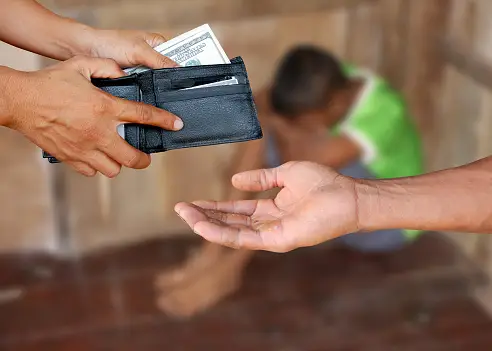In a startling revelation, the United Nations has unveiled a grim picture of the Southeast Asian region, stating that hundreds of thousands of individuals are falling prey to criminal syndicates engaging in illicit online operations and scams.
This disconcerting phenomenon has surged in the wake of the COVID-19 pandemic, leading to a surge in trafficking and exploitation, according to a comprehensive UN report released on Tuesday.
The report, based on compelling sources, highlights the shocking extent of the issue, with an estimated 120,000 individuals trapped within scam centers in Myanmar and around 100,000 similarly ensnared in Cambodia.
Criminal-run enterprises, spanning from crypto-fraud to online gambling, have also emerged in Laos, the Philippines, and Thailand.
This new breed of criminal activity has thrived on the vulnerabilities exposed by the pandemic, including the closure of casinos that pushed illicit activities into less regulated territories within Southeast Asia.
United Nations High Commissioner for Human Rights, Volker Turk, emphasized the severity of the situation, clarifying that those coerced into participating in these nefarious operations are, in fact, victims, not perpetrators.
“People who are coerced into working in these scamming operations endure inhumane treatment while being forced to carry out crimes. They are victims. They are not criminals,” said Turk.
The UN’s Human Rights Office report underscores the gravity of the issue, shedding light on the rampant exploitation of migrants in vulnerable situations. Criminal networks have cunningly exploited these individuals by disguising their operations as legitimate employment opportunities.
The rapid growth of these scam centers has led to the generation of billions of US dollars in revenue annually, further exacerbating the situation.
The report reveals that most victims hail from various Southeast Asian countries, as well as China, Taiwan, and Hong Kong. However, the reach of these criminal operations extends even further, with some victims originating from far-flung regions such as Africa and Latin America.
As a response to these disturbing revelations, the UN rights office has called on governments within the region to address the underlying issues.
Also Read: CS Amina Mohamed Lands New Job With United Nations
It emphasizes the need to strengthen the rule of law, tackle corruption, and break the cycle of impunity that enables these criminal enterprises to flourish.
At present, the governments of Myanmar and Cambodia have not yet responded to the UN report’s findings.
The shadowy nature of this human trafficking issue, coupled with gaps in governmental responses, makes it challenging to fully gauge the extent of the problem.
However, the report’s assertions underline the urgent need for collaborative action to combat these heinous activities that exploit the most vulnerable among us.




